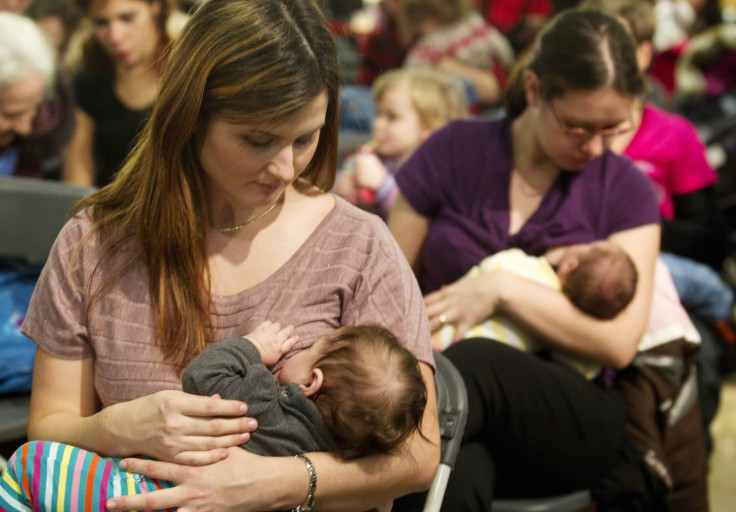Breastfeeding for longer 'could save NHS £40m per year'

Getting mothers to breastfeed for longer could save the NHS over £40m every year, a study has found.
Researchers from Brunel University London said that doubling the number of women who breastfeed for between seven and 19 months, and helping others to continue for at least four months, would result in these savings.
Publishing their findings in the Archives of Disease in Childhood, the scientists say it would cut healthcare costs by reducing common childhood diseases and lowering the risk of breast cancer among mothers.
However, the researchers said their conclusion should not be directed at mothers, but government investment in services to support them in breastfeeding.
In comparison with other high income countries, the UK has low rates of breastfeeding.
Over the last year, there have been a number of high-profile reports of women being chastised for breastfeeding in public. In one case, a young mother was called a "slut" for breastfeeding in a chain of Costa Coffee.
In one of the most highly publicised cases of the year, a photo of Emily Slough breastfeeding was posted online with the caption "tramp".
Subhash Pokhrel, of the Health Economics Research Group at Brunel, said: "This is not about persuading more women to breastfeed. It is to reassure policymakers that there is a return on investment in early help for mothers who have shown they want to breastfeed."
Researchers calculated the annual cost of treating four illnesses - gastrointestinal and lower respiratory tract infections; the ear infection otitis media in infants; the potentially lethal gut disorder necrotising enterocolitis in preterm babies and lifetime risk of breast cancer.
Findings showed the childhood illnesses cost £89m per year and breast cancer £960m.
Using a rigorous framework, they then calculated the difference if breastfeeding was extended.
Helping women who exclusively breastfeed for one week increase to four months would save £11m, they found. Doubling the rate of breastfeeding from 35% to 75% would save an additional £6m.
Doubling the number of women who breastfeed for between seven and 18 months would save £31m from cutting the instance of breast cancer, they added.
"Our study should reassure policymakers, service planners and commissioners that a rapid return on investment is realistic and feasible, supported by cost savings that can be realised in the first year of infants' lives," the authors said.
© Copyright IBTimes 2025. All rights reserved.




















